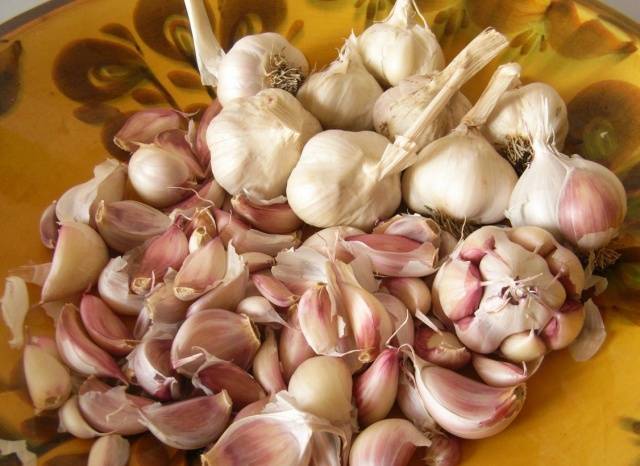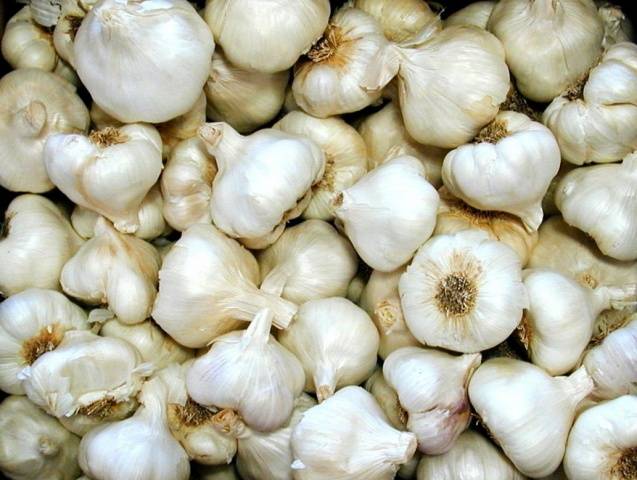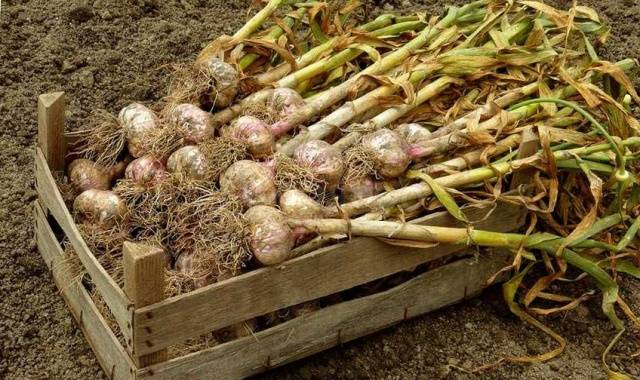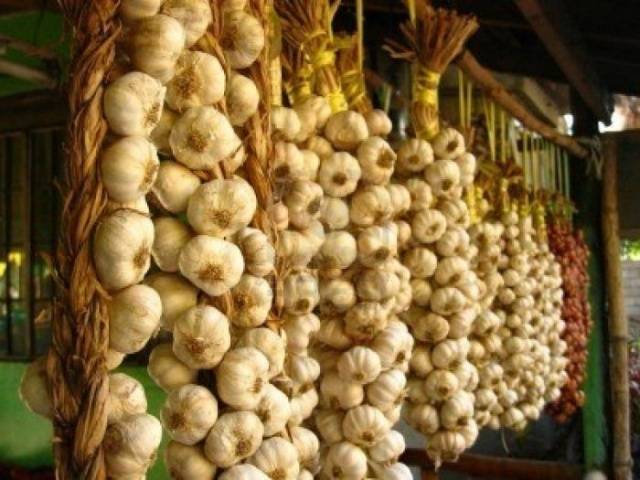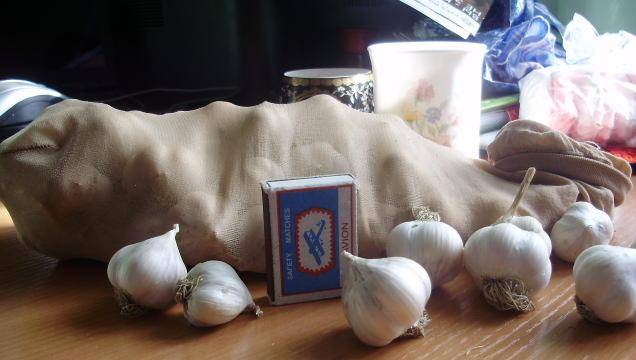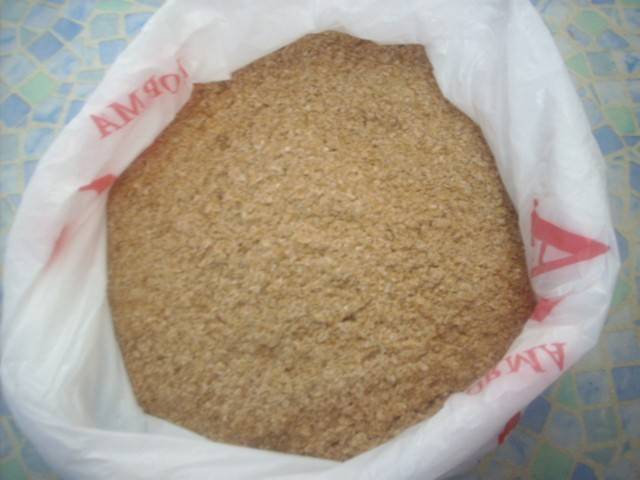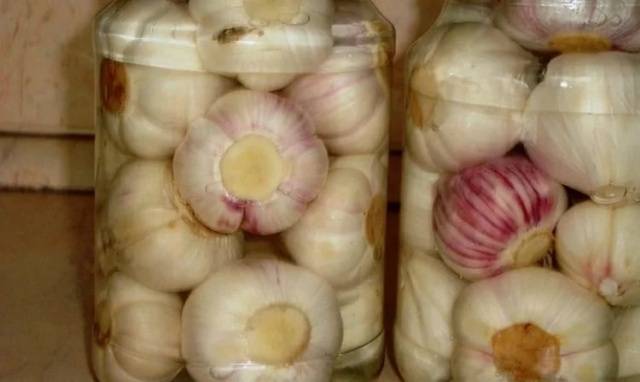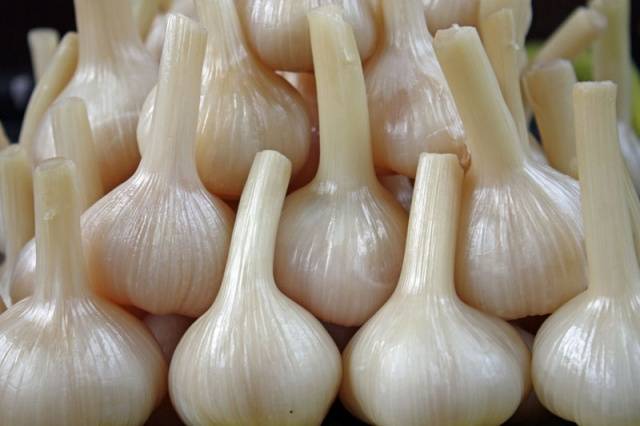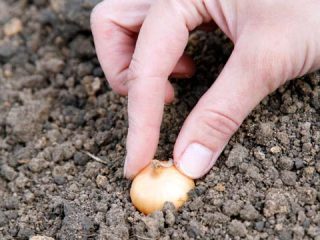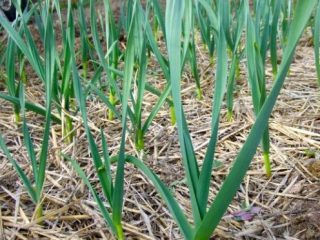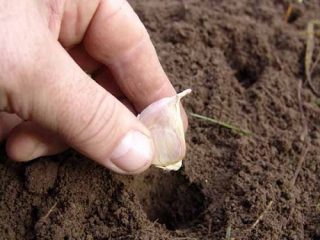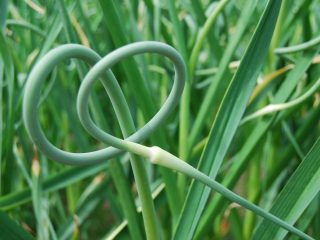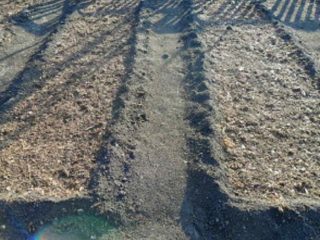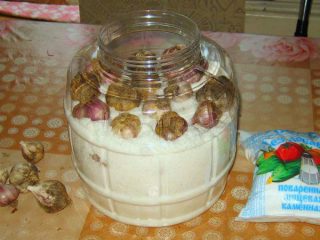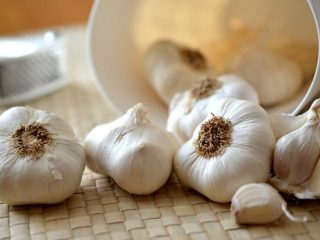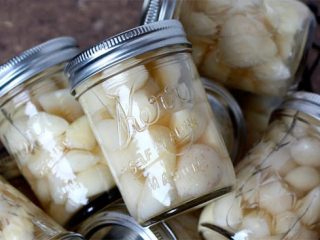Content
Garlic is a universal seasoning for almost all meat dishes, various appetizers and salads. Its healing properties are also well known. Many people successfully grow it in their garden. But not everyone knows the rules for storing spring garlic at home.
It was not for nothing that garlic was called the king of spices in ancient times, and manuscripts found in Egypt contain recipes for medicinal preparations prepared on its basis.
Benefit
Today this perennial plant of the onion genus is popular all over the world. The beneficial properties of garlic are due to the rich set of organic and mineral compounds it contains, known to have a regulating effect on many biochemical processes in the body.
Some eastern treatment systems even classify garlic only as medicine:
- Having antimicrobial and antibacterial properties, it strengthens the body's defenses in the fight against colds and infectious diseases;
- studies confirm the plant’s ability to reduce the likelihood of atherosclerosis;
- with regular use, it improves immunity, reduces blood pressure, improves vascular elasticity;
- Garlic has a beneficial effect on vision, skin condition, heart function, and is an excellent antioxidant.
However, people who have serious diseases such as hemorrhoids, asthma, hepatitis and some others should not consume the spice in large quantities.
Types of garlic
There are two types of garlic.
- Spring - planted in spring and ripens in late summer. It does not shoot, has excellent keeping quality and is stored for a long time. Its dense bulb with several rows of cloves is characterized by a pungent taste. For planting, you need to choose zoned varieties so that they have time to ripen in time.
- Winter - planted in the fall, and dug up in July. It does not have enough protective scales for long-term storage. It is better to eat this garlic immediately or use it when canning vegetables. Winter, unlike spring, shoots arrows. After ripening, a core remains in the center of the bulb, and cloves are placed around it. Although their number is less than that of spring, they are larger.
Cleaning time
For storage, it is best to choose spring varieties of garlic. But in order for it to be stored well, it is necessary to harvest it on time and correctly.
To determine the timing of garlic harvesting, experienced gardeners advise:
- pay attention to the condition of the garlic leaves at the base - if they have turned yellow and the root collar has become soft, you can proceed to cleaning;
- expose 2-3 bulbs and examine the scales - if they are smooth and strong, the bulbs can be dug up;
- If it easily breaks into cloves in your hands, time is lost - the garlic is overripe and will not be stored.
Harvesting Rules
In order for the harvested spring garlic to be stored for a long time and without loss, it is important to follow some recommendations when harvesting it:
- Bulbs should be dug in dry and sunny weather;
- you cannot pull them out of the ground - in order not to damage the heads, it is better to use a fork;
- spread burlap on the beds and arrange the entire harvest on it in rows - it should dry well within 4-5 days;
- cover the bulbs with leaves and grass from too bright sun so that they do not get burned;
- if the weather changes, it is better to bring the garlic under a canopy or in a well-ventilated area;
- After drying, the soil remaining on the roots must be removed carefully with your hands so as not to damage them. During drying, you should not tear off the leaves - from them nutrients are supplied to the bulbs, making them tastier and healthier;
- when all the garlic is dry, you need to cut off its roots and leaves - you can leave up to 3-4 mm from the roots, and up to 15 cm from the larger leaves;
- sort through the bulbs and discard those damaged during digging - they will not last long;
- Leave the largest specimens for planting.
Preparation for storage
It is necessary to provide garlic with optimal storage conditions:
- depending on the type, you can choose a cellar or balcony, but can also be stored in the refrigerator;
- an important indicator is humidity - it should not be more than 70-80%;
- if there is a lack of moisture, all the bulbs will shrink, but if there is a lot of moisture, they will begin to rot;
- Spring garlic is perfectly stored at room temperature, but to store winter garlic you need to create a cool environment with a temperature of up to two degrees Celsius.
Processing the bulbs before planting storage will increase their keeping quality.It is especially necessary for products that are not sufficiently dried or damaged during harvesting. The bulb processing technology is as follows:
- to prevent their germination, the roots should be scorched over a fire;
- Heat the sunflower oil well and cool;
- add a little iodine - about 10 drops per half liter;
- Dip all the bulbs one by one in the prepared product and then air dry.
Storing spring garlic
There are many storage options from which you can choose the one that is more convenient under the existing conditions.
Braiding
Garlic bulbs braided into braids will be a wonderful decoration in the kitchen interior. They are made by weaving the ends of leaves into a piece of twine. Not everyone wants to bother with braiding, so they simply lay out the garlic bulbs in nylon stockings and hang them up. The disadvantage of this storage method is the likelihood of the bulbs drying out or sprouting due to too high a temperature and lack of moisture in the room. You will have to periodically sort them, choosing the spoiled ones.
Old ways
Previously, villages knew well how best to preserve spring garlic.
- Comfortable store peeled garlic cloves in sunflower oil, but the container with the product should be in a dark place. The oil in which the spice was stored acquires a pleasant taste and smell and is an excellent salad dressing.
- Garlic bulbs were often kept in flour. Thoroughly dried, they were placed layer by layer in boxes or other containers with a lid and sprinkled with flour. The top of the container was closed with a lid. Since the flour absorbed excess moisture, the product was perfectly preserved until the new season.
- It was allowed to use ash instead of flour.By sprinkling the bulbs with ash, they could even be stored in a warm room.
- Salt is a great way to preserve garlic in your kitchen cupboard.
- There is an original way to store garlic bulbs in salt bags. Small bags made of natural cotton material should be soaked in a concentrated salt solution and dried. The bulbs placed in them will be perfectly protected from diseases and moisture.
- You can simply place the garlic bulbs in baskets where they will have free access to air.
- Garlic sprinkled with onion skins is perfectly preserved - both boxes and bags are suitable for this. You just need to place them in a higher place.
- You can put the bulbs in a wooden box and sprinkle them with sawdust. They will protect the garlic from drying out.
- Some housewives dry garlic cloves cut into slices, then grind them and sprinkle them with salt. The prepared seasoning is kept in an airtight container. The disadvantage of this method is the partial loss of beneficial properties.
Glass jars
- Burn the roots of well-dried garlic and separate them into cloves. It is important that they are all intact, without damage. Dry them for another week in the open air and put them in large jars. Without closing the lid, place the containers in a dry place.
- Place clean, dried onions in a jar on a layer of salt. Fill the jar with alternate layers of garlic and salt. By closing the jar with a lid, you can safely store the product for several months.
Modern methods
Over time, new materials and technologies appear that make it possible to effectively preserve various vegetables.
- Carefully wrapping each onion in cling film will help retain moisture and freshness.
- Instead of film, you can use paraffin.Having melted it, you should dip the bulbs and let the paraffin harden. After this, they will not dry out, covered with a protective film. It will not allow moisture to evaporate, and at the same time protect the bulbs from access by pathogenic microflora.
How to preserve winter garlic
The winter species is unlikely to persist until spring. But to preserve it longer, you can use a refrigerator or cellar.
- In the cellar, the bulbs can be stored in baskets or nylon stockings, hanging from the ceiling. However, they should not touch the walls.
- Winter garlic is great for braiding thanks to its central stem. Each braid can contain up to one and a half to two dozen bulbs.
- If you don't have much garlic, you can peel the cloves and store them in a closed jar in the refrigerator.
- You can also store peeled slices in a plastic bag, pump out the air from it and place it on the bottom shelf of the refrigerator.
Conclusion
Garlic is always needed in the household, both as a favorite spice and as a preventative against colds. Proper storage of it at home will allow you to stock it in sufficient quantities for the winter.
